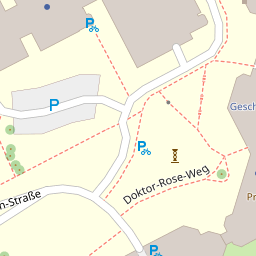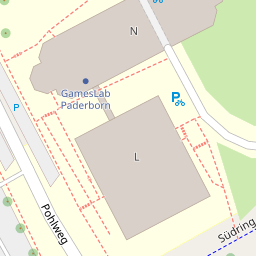
Dr. Tilman Moritz
Institut für Katholische Theologie » Church and religious history
Research Associate
Chair Assistant & Coordination of Interdisciplinary Exams
- E-Mail:
- tilman.moritz@uni-paderborn.de
- Phone:
- +49 5251 60-2354
- Web:
- Homepage
-
- Office Address:
-
Pohlweg 55
33098 Paderborn - Room:
- N3.142
- Office hours:
Outside of term time (summer 2025)
by appointment via email
About Tilman Moritz
Since 2023, I have been a permanent staff member in the Chair of Church and Religious History. I regard this subject as a historical discipline. Therefore, in both research and teaching, I am closely connected to General History and institutionally affiliated with the Historical Institute at the University of Paderborn.
My work focuses on Early Modern History (1450–1800), particularly in the areas of politics and nobility, literature and historiography, as well as cultural and confessional history.
Curriculum Vitae
Since 07/2023: Research associate (permanent position)
at the Chair of Church and Religious History (Prof. Dr. Nicole Priesching) and teaching fellow (for early modern & sectoral history) at the Historical Institute, Paderborn University
05/2023 - 07/2023: Research assistant (parental leave replacement)
ibid.
2016 - 2022: Research assistant (post-doc)
at the Chair of Church and Religious History (Prof. Dr. Nicole Priesching), Paderborn University
2015 - 2016: Lecturer
at the Historical Institute, Paderborn University
12.11.2015: Doctorate (PhD)
2013 - 2014: Visiting fellow
at SFB 933 »Material Text Cultures«, Heidelberg University
2009 - 2012: Research assistant (pre-doc)
at the Chair of Early Modern History (Prof. Dr. Johannes Süßmann), Paderborn University
2009: Fellow
at the International Post-Graduate Program »Politische Kommunikation von der Antike bis ins 20. Jahrhundert«, Universities of Innsbruck and Bologna
2008: Post-graduate assistant
at the Historical Institute (Prof. Dr. Hartmut Leppin / Prof. Dr. Frank Bernstein and Prof. Dr. Luise Schorn-Schütte / Dr. Markus Friedrich), Goethe University Frankfurt
2005 - 2007: Tutor in Classical Studies and Latin
at the Seminar for Ancient History (Prof. Dr. Manfred Clauss / Prof. Dr. Hartmut Leppin), Goethe University Frankfurt
2004 - 2007: Student assistant
at the Historical Institute (Prof. Dr. Manfred Clauss and Prof. Dr. Luise Schorn-Schütte / Dr. Markus Friedrich), Goethe University Frankfurt
2002 - 2007: Studies
in History and Archaeology at the Universities of Frankfurt and Mainz (degree: Magister Artium/Master of Arts)
07.05.2023: Das Scheitern Ulrichs von Hutten: Fiktion und Funktion einer ritterlichen Selbstinszenierung
»Reformationsgeschichtliche Vorträge«, Ebernburg-Stiftung, Bad Münster a. St.
08.09.2022: Ex historia eruta. Zur Paderborner Geschichtsschreibung im 17. Jahrhundert
»Monumenta«-Ausstellung, Kreismuseum Wewelsburg
27.05.2022: Projektbericht
Kolloquium »Aktuelle Forschungen zur Frühen Neuzeit«, Universität Paderborn, Historisches Institut
27.11.2020: Projektbericht
Kolloquium »Aktuelle Forschungen zur Frühen Neuzeit«, Universität Paderborn, Historisches Institut
30.10.2019: Barockisierte Herrschaft? Neuordnungen Paderborns aus dem Dreißigjährigen Krieg
Ringvorlesung »Barock: Kulturtransfer / Transferkultur«, Universität Paderborn, Institut für Germanistik und Vergleichende Literaturwissenschaft
21.09.2019: Auferstehung und Ruinen. Das Bistum Paderborn im unsichtbaren Schatten des Dreißigjährigen Kriegs
Jahrestagung der Görres-Gesellschaft 2019, Paderborn
28.06.2019: Seelsorge an der Geschichte. Konfessionelle Historiographie und Paderborner Geschichtspolitik des 17. Jahrhunderts
Tagung »Katholische Konfessionalisierung in Paderborn? Religiöse Prozesse in der Frühen Neuzeit«, Universität Paderborn und Theologische Fakultät Paderborn
20.06.2019: Religious Discourses in the 16th Century
Tagung »Ways to Reconciled Diversity in Christianity and Islam«, Johann-Adam-Möhler-Institut (Paderborn), Institut für Ökumenische Studien (Strasbourg), Zentrum für Komparative Theologie und Kulturwissenschaften (Paderborn)
29.06.2017: Autobiographik als ritterschaftliche Selbstverständigung: Das Beispiel der Argula von Grumbach
»Bielefelder Kolloquium« (Prof. Dr. Franz-Josef Arlinghaus), Universität Bielefeld, Historisches Institut
13.01.2011: Ulrich von Hutten, ein ritterschaftlicher Autobiograph?
Kolloquium »Neuere Forschung zur Geschichte der Frühen Neuzeit«, Justus-Liebig-Universität Gießen, Historisches Institut.
24.11.2010: Autobiographik als Ausdruck ritterschaftlicher Habitusbildung im Reich (1480-1560)
»Kolloquium zur Geschichte«, Bergische Universität Wuppertal, Historisches Seminar
01.09.2021: E-Learning Advanced
Höchstwertung für das Proseminar »Die Prozesse um Jeanne d’Arc«, SoSe 2021, Universität Paderborn
05.08.2020: Good Practice digitaler Lehre
Auszeichnung Good Practice digitaler Lehre für das Proseminar »Konquista und Mission – Katholische Kultur(en) im frühneuzeitlichen Lateinamerika«, SoSe 2020, Universität Paderborn
20.12.2011: Förderung der Dissertation
durch Forschungsmittel der Fakultät für Kulturwissenschaften, Universität Paderborn
28.09.2016 - 30.09.2016: Moderation
Tagung »Wissensordnungen und Argumentationsmuster des Politischen im späten Mittelalter und in der frühen Neuzeit, 14.–16. Jahrhundert«, Universität Trier, Zentrum für Mediävistik
Research
Publications
Selected Publications
Autobiographik als ritterschaftliche Selbstverständigung. Ulrich von Hutten, Götz von Berlichingen, Sigmund von Herberstein
T. Moritz, Autobiographik als ritterschaftliche Selbstverständigung. Ulrich von Hutten, Götz von Berlichingen, Sigmund von Herberstein, V & R unipress, Göttingen, 2019.
Seelsorge der Geschichte? Konfessionelle Geschichtspolitik im 17. Jahrhundert am Beispiel der Monumenta Paderbornensia Ferdinands von Fürstenberg
T. Moritz, in: S. Kopp, T. Moritz, N. Priesching (Eds.), Katholische Konfessionalisierung in Paderborn? Religiöse Prozesse in der Frühen Neuzeit, Aschendorff, Münster, 2021.
Das Scheitern Ulrichs von Hutten. Fiktion und Funktion einer ritterlichen Selbstbeschreibung
T. Moritz, Ebernburg-Hefte 57 (2023) 259–278.
Show all publications
Scientific Engagement
Since 2018 | DFG-Schwerpunktprogramm 2130 "Übersetzungskulturen der Frühen Neuzeit"
assoziiertes Mitglied
Since 2017 | AG "Säkularismus und nichtreligiöse Überzeugungssysteme" des Zentrums für Komparative Theologie und Kulturwissenschaften (ZeKK), Paderborn
Since 2016 | Verein für Geschichte und Altertumskunde Westfalens, Abt. Paderborn e. V.
Since 2016 | Verband der Historiker und Historikerinnen Deutschlands e. V.
Since 2006 | Willibald-Pirckheimer-Gesellschaft zur Erforschung von Renaissance und Humanismus e. V.
Further Information
I. Current research
Politics of history in the prince-bishopric of Paderborn after the Thirty Years War
Confessional conflicts were identified as a main factor of escalating violence during the 16th and 17th century. Hence there were several initiatives to exclude religious dissent from different spheres of life, in particular from the political field which first came to its own at the same time. Religious rule, however, was essentially based on confessional, i. e. catholic pervasion of everyday life and politics. Therefore its actors looked for ways to reintregate religious identity into public discourse as well as redefining political practices in the light of a renewed (and emphasised) catholicism – all in order to 'stabilise' the deeply jolted sovereignity of ecclesiastical princes.
My research aims to understand contemporary historiography as a medium of such "political communication", both as discourse and practice of building identity or community respectively. It focusses on the several historiographical 'projects' initiated by Ferdinand von Fürstenberg, prince-bishop of Paderborn (b. 1626, d. 1683). Their design was rooted in personal and institutional 'experiences' of the Thirty Years War and the Peace of Westphalia but became formative for memory cultures far beyond. A closer look will also be taken at the influence of Jacob Masen (b. 1606, d. 1681), a Jesuit and prolific author on rhetoric and controversial theology. His personal contribution to the "Annales Paderbornenses" has received little attention so far and thus will be studied in-depth.
II. Courses
Winter term 2023
The Church between revolution and reaction (1789–1850)
Basic themes and current research in Church History
Introduction to the study of Early Modern History (Historical Institute)
The Seven Years War (Historical Institute)
Summer term 2023
Constantine – The emperor and his god
Summer term 2022 (entfallen)
Licence to kill? Christian ideas of knighthood
Winter termr 2021/22
Gender history in Reformation studies
Summer term 2021
The processes of Joan of Arc (awarded with E-Learning Label Advanced)
Winter term 2020/21
Baroque, a catholic media revolution?
Summer term 2020
Conquista and mission. Catholic culture(s) in early modern Latin America (awarded with E-Learning Label Basic and Good Practice in Digital Teaching award)
Winter term 2019/20
Confessional churches and ecumenic thought in the early modern period (in association with the department of Systematic Theology, Paderborn)
Summer term 2019
Holy warriors, power politicians, media professionals – the Jesuits in the early modern period
Winter term 2018/19
Enligthment in "Catholic" and "Muslim" France (in association with the department of Romance studies, Paderborn)
Summer term 2018
"Romans go home" – Palestine in the time of Jesus (in association with the department of Systematic Theology, Paderborn)
Winter term 2017/18
Wars of belief, religion and confession (1550–1650)
Summer term 2017
Laicism in France, its history and the role of Islam (in association with the department of Romance studies, Paderborn)
Winter term 2016/17
The history of the bishopric of Paderborn from founding to present day
Summer term 2016
Basic themes and methods of Church History
Winter term 2015/16
Introduction to the study of Early Modern History (Historical Institute, Paderborn)
Machiavelli (Historical Institute, Paderborn)
Summer term 2012
»Si vis pacem para bellum«? Society and violence during the Thirty Years War (Historical Institute, Paderborn)
Winter term 2011/12
Ferdinand von Fürstenberg (1626–1683), prince-bishop of Paderborn and Münster (with Prof. Dr. Johannes Süßmann, Historical Institute, Paderborn)
Winter term 2010/11
Knight, Death and the Devil – the 16th century as a period of nobility crisis?











